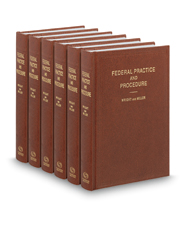

Conflict of Laws is a staple course at The Catholic University Columbus School of Law. Additionally, it is a subject tested on the Virginia Bar exam. Conflict of Laws issues are also embedded in other subjects on the Multi-state Essay Exam (the M.E.E. is a U.B.E. component), although they do not appear as stand-alone questions.
The term “Conflict of Laws” describes generally the body of law that aspires to provide solutions to international or interstate legal disputes between persons or entities other than countries or states as such. A dispute is considered international or interstate if one or more of its constituent elements is connected with more than one country or state. These elements may include the parties’ citizenship, domicile, residence, or other affiliation with a state or country, the location of the events that give rise to the dispute, or the location of the object of the dispute. Thus, a contractual dispute between citizens of different countries or domiciliaries of different states, or a property dispute between domiciliaries of one state regarding assets situated in another state, or a tort resulting from conduct occurring in one state and causing injury in another state are examples of disputes that fall within the scope of this subject. “Conflict of Laws,” a term first used by a European writer, is now primarily used in the United States, Canada and more recently in England. “Private International Law,” a term first used by an American writer, is now used in Continental countries, and by some writers in England, at least since the writings of Westlake. Each of the two terms reflects different assumptions about the nature and function of this body of law, but neither term is fully descriptive.
[Definition from Peter Hay et al., Conflict of Laws (6th ed., 2018)]
 Restatement of the Law, Second, Conflict of Laws
by
ALI
Restatement of the Law, Second, Conflict of Laws
by
ALI
 Federal Practice and Procedure
by
Charles Alan Wright; Arthur R. Miller
Federal Practice and Procedure
by
Charles Alan Wright; Arthur R. Miller